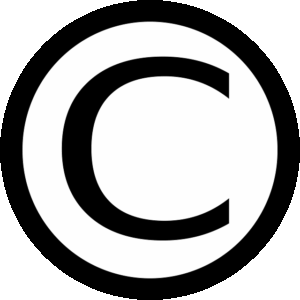Navigating IP Law: The Essence of Certified Translations in UK Intellectual Property Cases
When intellectual property (IP) documents such as patents, trademarks, and copyrights require translation for legal proceedings in the UK, it is crucial to engage specialized translation services with expertise in both language proficiency and IP la…….

When intellectual property (IP) documents such as patents, trademarks, and copyrights require translation for legal proceedings in the UK, it is crucial to engage specialized translation services with expertise in both language proficiency and IP law. These translators must accurately convey technical language, legal terminology, and cultural nuances to ensure the translated content reflects the original's intent. Certified translations from these UK translation services are indispensable, as they come with a certificate of accuracy and a declaration confirming compliance with legal standards, which is vital for acceptance in legal proceedings and regulatory bodies. The precision and legal integrity of these translations prevent potential misinterpretation that could compromise the protection of intellectual property rights and affect legal outcomes. Always opt for accredited translation services with a track record in this field to maintain the highest levels of accuracy and confidentiality, ensuring the successful navigation of IP disputes within the UK's legal framework.
Navigating the complexities of intellectual property (IP) law, particularly within the UK, often necessitates a precise and legally-sound handling of documentation. This article delves into the critical role of certified translations in IP cases, underscoring their importance for international litigation and transactions. We explore the intricacies of UK translation services specialising in IP documents, the legal standards governing such translations, and the challenges faced when translating patents, trademarks, and copyright materials. From understanding the necessity of these translations to identifying accredited agencies, this comprehensive guide provides insight into best practices for engaging translation services for legal IP matters, ensuring that your documentation stands up to scrutiny in any UK court or international dispute resolution forum.
- Understanding the Necessity of Certified Translations in IP Cases
- The Role of UK Translation Services in Intellectual Property Disputes
- Key Types of Intellectual Property Documents Requiring Translation
- The Legal Framework Governing Certified Translations for UK IP Cases
- Identifying Accredited Translation Agencies for Intellectual Property Materials
- The Translation Process: Ensuring Accuracy and Compliance
- Challenges in Translating Patents, Trademarks, and Copyright Documents
- Case Studies: Successful Use of Certified Translations in IP Litigation
- Best Practices for Engaging Translation Services for Intellectual Property Legal Matters
Understanding the Necessity of Certified Translations in IP Cases

In the realm of intellectual property law within the UK, the precise accuracy of translated documents is paramount. Intellectual Property Documents often contain complex terminology and nuanced information that can significantly influence the outcome of legal proceedings. As such, these documents require meticulous translation to ensure their integrity and legal efficacy. UK translation services specializing in certified translations offer the expertise necessary to convey content with exactness, adhering to both the source and target language’s legal standards. This certification attests to the truthfulness and authenticity of the translated text, making it legally admissible in UK intellectual property cases. The role of these services is crucial, as they bridge linguistic gaps while maintaining the legal weight of the original documents. This ensures that all parties involved have access to clear, accurate, and comparable information, facilitating fair and just proceedings in the context of IP law.
The Role of UK Translation Services in Intellectual Property Disputes

In the complex realm of intellectual property (IP) disputes within the UK, the accuracy and precision of legal documents are paramount. Intellectual Property Documents, which encompass patents, trademarks, copyright registrations, and design rights, often require meticulous translation to navigate cross-jurisdictional challenges. This is where the expertise of UK translation services becomes indispensable. These professionals are not only adept at converting legal texts into accurate translations but also understand the nuances of IP terminology, ensuring that the essence and intent of the original documents are preserved in the target language. The role of UK translation services extends beyond mere linguistic conversion; they provide a critical link in maintaining the integrity and clarity of IP cases. By enabling parties to fully comprehend and engage with the legal material in their own language, these services facilitate fair and informed dispute resolution, which is crucial for upholding the rights and interests involved in IP litigation. The use of certified translations by accredited UK translation services thus becomes a cornerstone in the adjudication process, ensuring that all stakeholders have access to clear, precise, and legally admissible documentation. This not only expedites the resolution process but also minimises the potential for misinterpretation or disputes over document authenticity, which can be pivotal in the outcome of intellectual property cases.
Key Types of Intellectual Property Documents Requiring Translation

The Legal Framework Governing Certified Translations for UK IP Cases

In the United Kingdom, intellectual property (IP) is a critical component of innovation and creativity across various sectors. The legal framework governing certified translations for UK IP cases is stringent and precise to ensure accuracy and legal compliance. This framework is underpinned by legislation such as the Intellectual Property Act 2014, which outlines the requirements for documentation submitted in IP cases. Certified translations of foreign-language IP documents must adhere to these standards, as they are often encountered in international patent applications, design registrations, and trademark filings. UK translation services play a pivotal role here; they provide certified translations that meet the high standards set by both the UK Intellectual Property Office (IPO) and the European Patent Office (EPO). These translations are signed, dated, and stamped by qualified translators, confirming the authenticity and reliability of the translated content. This process is essential for maintaining the integrity of IP documentation in multilingual proceedings, ensuring that all parties involved have access to precise and legally recognized translations.
The UK’s adherence to the European Union’s Directive 2012/143/EU on the recognition of professional qualifications also impacts the translation services sector. It requires that certified translations for IP cases are carried out by translators who hold a recognized qualification, such as those accredited by the Institute of Translation and Interpreting (ITI) or the Chartered Institute of Linguists (CIOL). These translators must be adept at not only the source and target languages but also familiar with IP terminology to ensure that technical nuances are accurately conveyed. Consequently, UK translation services offering certified translations for IP documents must navigate a complex array of legal requirements and professional standards, thereby safeguarding the legal validity and enforceability of translated IP materials within the UK jurisdiction.
Identifying Accredited Translation Agencies for Intellectual Property Materials

When engaging in intellectual property (IP) matters within the UK, the accuracy and authenticity of translations are paramount. Intellectual Property Documents require meticulous translation to ensure that their meaning is preserved precisely across languages. This is where accredited translation agencies play a critical role. These agencies specialize in providing UK translation services that adhere to the highest standards, guaranteeing that IP documents such as patents, trademarks, and copyright materials are accurately translated. The translators at these agencies are not only proficient in multiple languages but also well-versed in the nuances of intellectual property law. This expertise is essential for conveying complex legal terms and specifications without any ambiguity. Choosing an accredited agency ensures that your translations will be accepted by UKIPO (United Kingdom Intellectual Property Office) and other relevant authorities, facilitating a smoother process in securing and defending your IP rights on an international scale. When selecting an agency, consider their track record with similar clients and their ability to provide certified translations that stand up to legal scrutiny. With the right translation partner, you can navigate the intricacies of IP documentation with confidence, knowing that your translated materials will effectively represent your original content in the UK market.
The Translation Process: Ensuring Accuracy and Compliance

When it comes to intellectual property (IP) cases within the UK, the precision and legitimacy of translated documents are paramount. The translation process for IP documents requires a meticulous approach to ensure that every nuance of the original text is accurately captured in the target language. Certified translations for UK intellectual property cases must adhere to strict standards set by legal entities and regulatory bodies. Translators specializing in this field are not just linguistic experts but also have an intimate understanding of IP law and its terminology. They utilize advanced translation technologies combined with their expertise to guarantee the fidelity of the content. This is crucial as minor discrepancies can lead to misinterpretations that could compromise legal proceedings.
UK translation services offering certified translations implement a rigorous process involving multiple checks and verifications. Firstly, the translation is performed by a professional translator with subject-matter expertise in intellectual property law. Following this, the translated document undergoes a review process where another linguistic specialist checks for both accuracy of content and compliance with legal requirements. Finally, the translation service provides a certificate of accuracy and confirmation that the translation meets the necessary legal standards. This certification is essential as it attests to the authenticity and reliability of the translated documents, ensuring they stand up to scrutiny in court or before any regulatory authority.
Challenges in Translating Patents, Trademarks, and Copyright Documents

Intellectual Property (IP) documents such as patents, trademarks, and copyrights are critical legal instruments that safeguard inventions, brands, and original works. When these documents require translation for use in UK intellectual property cases, the task extends beyond mere linguistic conversion. Certified translations must accurately convey complex technical language, legal jargon, and cultural nuances, all of which are integral to the validity and enforceability of the IP rights. The challenges in translating patents, trademarks, and copyright documents are multifaceted. Translators must possess a deep understanding of both the source and target languages, as well as the specific lexicon used within the IP domain. This is crucial because errors or misinterpretations can lead to significant legal complications and potentially jeopardize the protection of the intellectual property in question. Moreover, cultural differences may affect the translation process, as certain symbols, expressions, or concepts might have no direct equivalent in the target language, necessitating creative solutions that maintain the document’s original intent. UK translation services specializing in intellectual property documents are adept at navigating these complexities to provide precise and legally sound translations that meet the stringent requirements of UK courts and IP offices. Their expertise ensures that the integrity of the original text is preserved, and the rights of IP holders are accurately represented across different jurisdictions.
Case Studies: Successful Use of Certified Translations in IP Litigation

In the complex realm of intellectual property litigation within the UK, the accuracy and authenticity of translated documents are paramount. A pivotal case that underscores the importance of certified translations involved a multinational company whose patent infringement lawsuit hinged on technical specifications that were initially in Japanese. The UK translation services provided meticulous and certified translations of these documents, which allowed the UK courts to fully understand the nuances of the original text. This enabled the court to make an informed decision, upholding the integrity of the legal process and the intellectual property rights at stake. Another illustrative example is the successful defense of a European trademark by a small business against a larger competitor. The dispute centered on product descriptions in Spanish, which were accurately translated and certified by UK translation professionals. The certified translations provided clarity and precision that was crucial for the court to assess the validity of the trademark claims. In both instances, the use of certified translations ensured that the intellectual property documents were treated as authentic evidence, thereby influencing the outcomes in favor of the litigants who had secured professional translation services.
Best Practices for Engaging Translation Services for Intellectual Property Legal Matters

When legal matters involving intellectual property rights are at stake, precision and accuracy in translating critical documents are paramount. In the UK, translation services that specialise in legal terminology and intellectual property documentation must be sought to ensure that all nuances of the original text are captured without ambiguity. The best practice is to engage with translation services that offer certified translations, which come with a statement of accuracy and a signed declaration by the translator. These translators should have specific expertise in intellectual property law and its terminology to avoid misinterpretation of technical terms and legal jargon. It is also crucial to choose services that are accredited and recognized by relevant legal entities within the UK, such as the Intellectual Property Office or the courts. This ensures that the translations meet the high standards required for legal proceedings. Additionally, confidentiality agreements should be in place to protect sensitive information contained within the documents being translated. By adhering to these guidelines, parties involved in intellectual property disputes can navigate the complexities of cross-language communication with greater confidence and legal security.
In conclusion, the critical role of certified translations in UK intellectual property cases cannot be overstated. The intricacies of IP documentation necessitate expert handling by UK translation services that are well-versed in both legal terminology and the nuances of language. This article has outlined the key types of intellectual property documents that require professional translation, the legal framework governing these translations, and the best practices for engaging such services. It is clear that when it comes to IP litigation, precision and compliance are paramount. By leveraging accredited translation agencies specializing in intellectual property materials, parties can navigate these complex matters with confidence, ensuring that their case is fairly represented in a multilingual legal landscape. For those involved in UK intellectual property cases, the importance of selecting the right translation services cannot be underestimated—it is an investment in the integrity and outcome of your legal proceedings.






